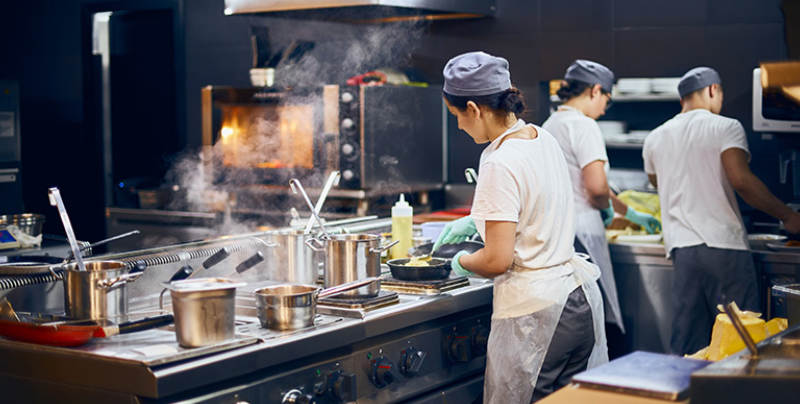With events on the brink of happening again and kitchens all over the country preparing to reopen, we have created this guide to help remind you of the basic food hygiene rituals for your commercial kitchen.
Cross-contamination
Cross-contamination is probably the most essential aspect of any food hygiene rule. With allergies and people with other dietary restrictions or lifestyle choices, you have to be more careful than ever to ensure that food stays apart.
Whether having a temporary kitchen set up at a wedding, festival or event or if you are part of a large restaurant chain, the rules remain the same. If you cannot prevent cross-contamination, then signage should be up for your customers to see.
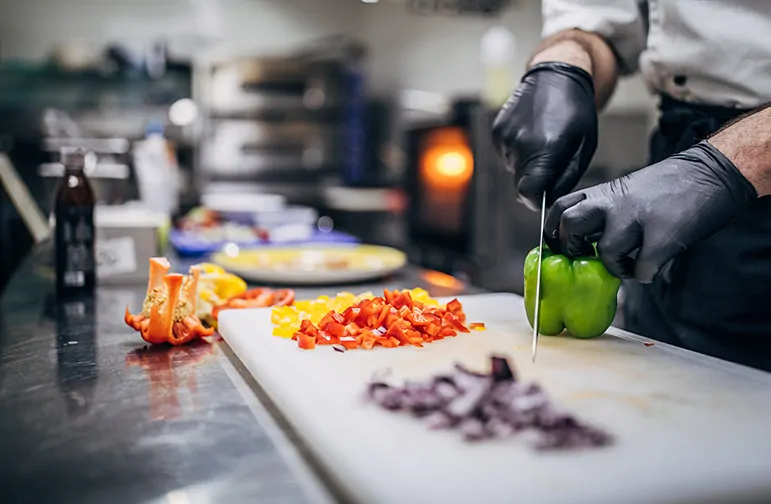
Safe food storage
Our previous article on ‘how cold should your commercial refrigerator be’ outlines the levels you require to successfully and safely store your food goods. Depending on the time of year and which type of fridge or freezer you are using, you may find that food can quickly become warm if it is not stored correctly.
Stacking food in a regular fridge or freezer can mean that the temperature levels can fluctuate substantially. If you are constantly opening and closing the fridge door, this can also adjust the temperature. Suppose you are taking a generic fridge or freezer to a busy event. In that case, you may want to consider hiring a refrigerated trailer as they are built for high usage and the constant opening and closing of doors. We have an in-depth article outlining the differences here.
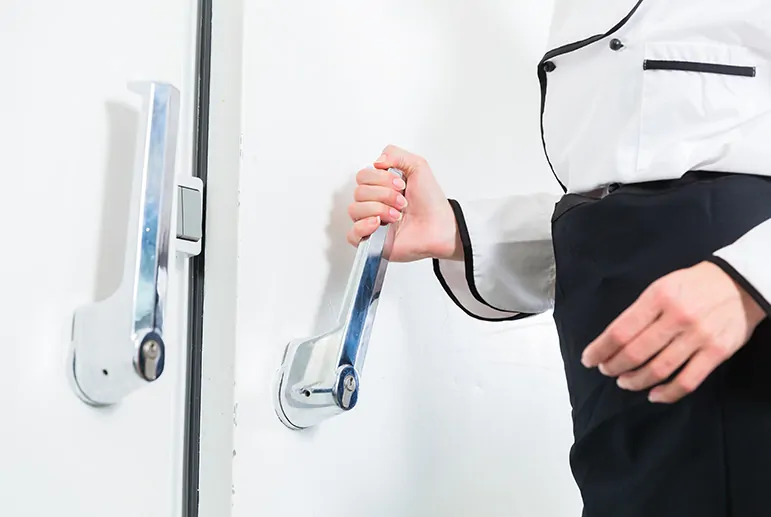
Thawing food
There are various ways in which you can defrost food safely. Once it is out of the freezer and the process of defrosting has begun, you should never put the food back in. This will allow harmful bacteria to settle.
- Fridge defrosting is probably the least likely way you will want to defrost your food if you are working for an event or wedding. It can take a full day to defrost your products in a fridge, and therefore, it can be very time restricting and not a viable option for many places but your home.
- Coldwater thawing is the most common way to defrost food in a commercial kitchen. Food should be placed either in a sealed, leak-proof plastic bag or each particular type of food put into the same container to defrost together.
- Microwave defrosting is the fastest way to thaw food. But unless you plan to cook the food instantly after the thawing process, then do not do this. The food may have already been partially cooked or at least warmed to a level that can be prime for the spread of bacteria.
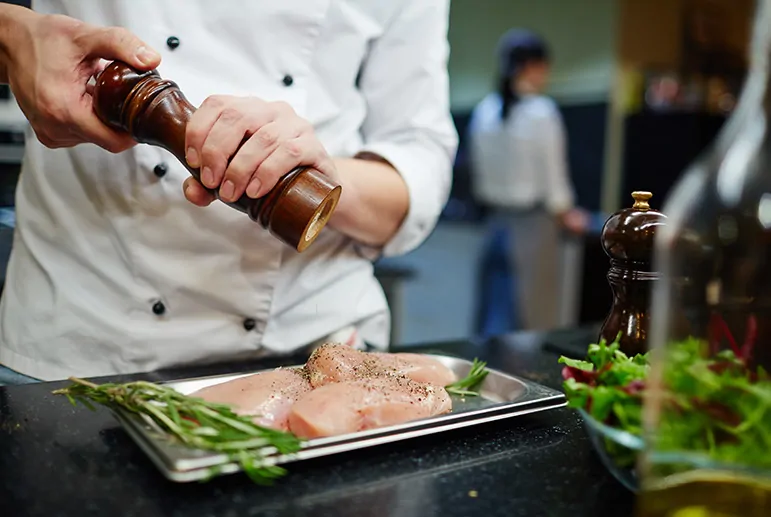
Fridge and freezer maintenance
If you are hiring a commercial fridge or freezer, you do not need to worry about the maintenance, as we will do that ourselves. However, if you are working for an event, you will need to disinfect and thoroughly clean your fridge at the end of the day. This will help to prevent any bacterial contamination, which could lead to food poisoning.
If the event runs over a few days, the same will need to be done with all utensils, crockery and cutlery.
Washing stations and sinks
Sinks, taps, draining boards, and such should all be cleaned thoroughly and disinfected at the end of every shift. All surfaces surrounding the sink should also be cleaned thoroughly.
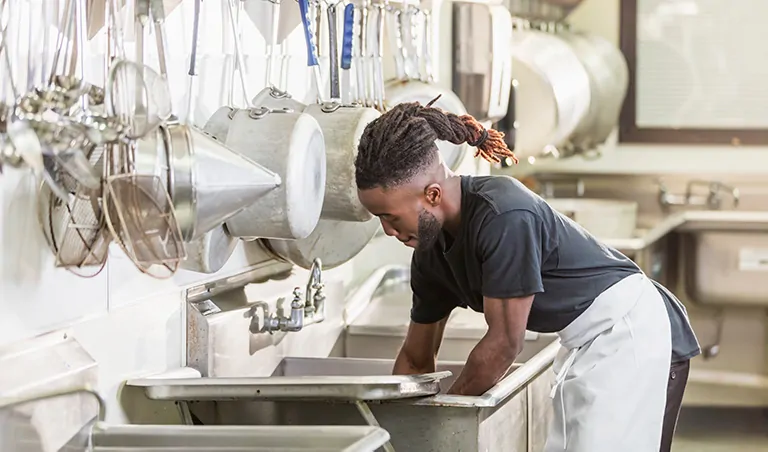
Why hire a refrigerated trailer or refrigerated van for your event?
Suppose you want to lower the risks at your event, wedding or festival. In that case, you can hire a professional refrigerated van that will enable you to safely store all of your foods produce at a commercial level. This can help give you peace of mind and allow you to focus your attention on satisfying your clients and customers’ needs instead of worrying about your food hygiene and refrigeration needs.
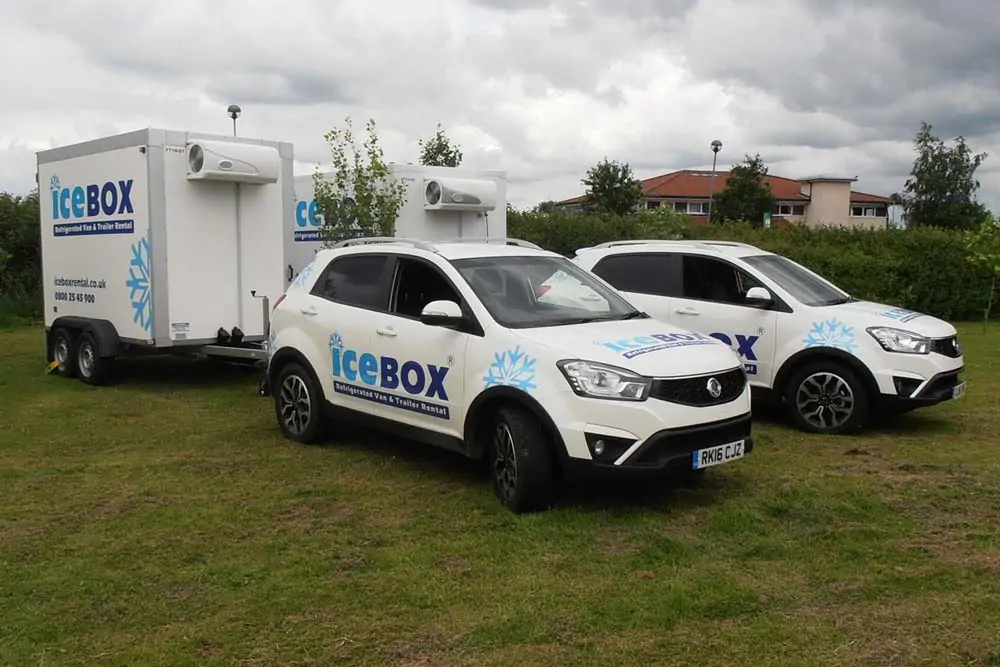
If you have an event coming up and wish to discuss your need, please contact us for a chat.

